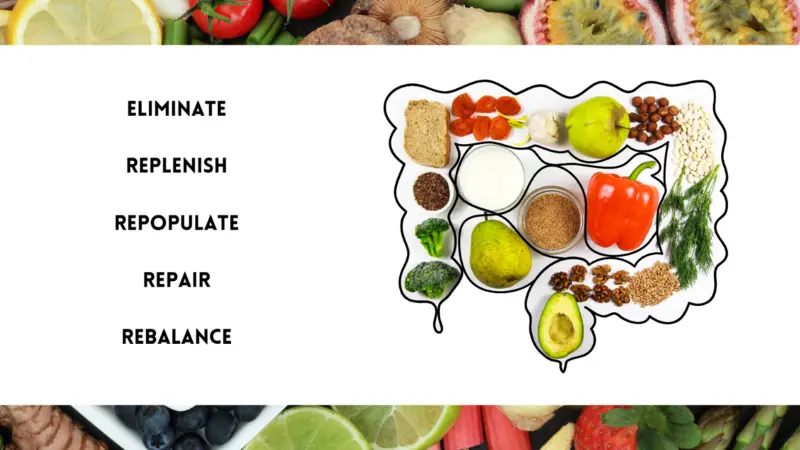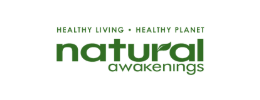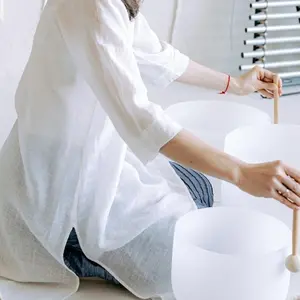
Healing Ways
Healing Ways
Functional Medicine Approach to Colon Health: Simplified Steps to Repair and Restore the Gut
In the United States, colorectal cancer is one of the most common types of cancer. According to the American Cancer Society, the disease is expected to precipitate approximately 53,000 deaths in 2024, and incidence rates for people under 55 have been increasing by 1 to 2 percent each year. Regular screenings and lifestyle improvements, including a healthy diet and regular exercise, can decrease the risk.
“The gut is the root and the foundation of health,” says Vincent Pedre, M.D., a board-certified internist specializing in functional medicine and the best-selling author of The GutSMART Protocol. In addition to dramatically improving overall health, his protocol incorporates science-backed lifestyle modifications that have been shown to optimize gut health and reduce the incidence of colorectal cancer.
Optimizing Digestive Health
Research has proven that chronic inflammation is highly correlated with the development of colorectal cancer. A functional medicine approach begins by easing inflammation and then taking steps to restore the population of healthy bacteria in the gut by replenishing nutrients, repairing the gut lining, rebalancing the body and managing stress.
Putting out the fire in the gut: The first step is to remove the possibly offending triggers of inflammation, beginning with gluten; grains; dairy; sugar; soy; nutrient-depleted foods containing artificial ingredients, preservatives and additives; processed foods; genetically modified foods; and any ingredient for which there is a sensitivity. A practitioner can also test for and address chronic illnesses that may be impacting the gut such as hepatitis, Epstein-Barr and other viral and fungal infections.
Replenishing nutrients: To restore the vitamins, minerals, nutrients and other essential ingredients needed for proper digestion and absorption, it is important to incorporate more organic, whole foods in the diet, but that is not the full story. As Pedre explains, “There is not one right diet. If you eat foods that you cannot break down into little nutrients and absorb, then it doesn’t get broken down and tends to feed bad bugs that can grow inside of you. We really need to think about whether our gut is capable of breaking down the foods we actually eat because that is really what determines whether the diet is right for you.”
In his book, Pedre offers a quiz that helps people determine their level of gut dysfunction. Alternatively, a practitioner can evaluate stomach acid and digestive enzyme levels to ensure that food is being broken down properly. “Digestive enzyme supplements can help pick up where your body might be falling short, breaking down your foods, making them more digestible,” explains Steven Wright, co-founder of the Healthy Gut Company. To help support the gut microbiome, Pedre recommends altering the diet to increase the number and quantity of vegetables and fermented foods, such as sauerkraut and kimchi.
Restoring the balance of good bacteria in the gut: Crucial for colon and overall health is a robust population in the gut of probiotics (the good bacteria) and prebiotics (the food for probiotics). Fermented foods are excellent probiotic sources, while green, leafy vegetables and other high-fiber foods, as well as asparagus, carrots, garlic, leeks, raw onions, radishes and tomatoes, are some of the best prebiotics. If levels are insufficient with just food, probiotic and prebiotic supplementation may be necessary.
Repairing the gut lining: Our intestines are lined with millions of cells that create a tight barrier—the gut lining—which in essence determines what is absorbed into the bloodstream and what stays in the gut to eventually be eliminated. When the gut lining is not healthy, however, the barrier is not able to perform its job properly, allowing toxins and bacteria to leak into the body and preventing the system from properly absorbing nutrients. To repair the lining naturally, it is imperative to eat plenty of organic, whole foods that include zinc; vitamins A, C, D and E;omega-3 fatty acids; and selenium.
Rebalancing our lifestyle: “Slowing down when you eat and saying some prayers between bites is a real big deal,” Wright advises. “It allows your gut to make acid in your stomach and make enzymes work in your intestines.” He also recommends playing and spending time outdoors with our hands in the dirt and breathing in the smells and molecules that “tell our body that it is a normal environment.” Activities like gardening and yard work add diversity of microbes from the soil and will help to balance our microbiome.
Managing stress: “Stress is an attack on your gut, a self-induced attack,” Pedre notes. By incorporating coping techniques, exercise routines, consistent sleep patterns and time in nature, we help optimize gut healing and maintain the body’s well-being and balance.
Madiha Saeed is a holistic, functional and integrative doctor in Naperville, Illinois, and director of education for Documenting Hope and KnoWEwell.
Original article published at Natural Awakenings


 By
By







